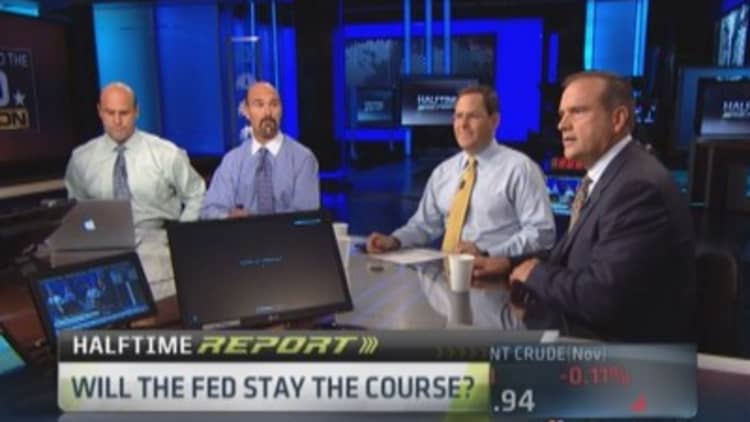The International Monetary Fund has become the latest group to warn on risk taking and equity valuations, as prices in "virtually all major asset classes" now look stretched, the fund said.
Following in the footsteps of the Federal Reserve and the Organization for Economic Cooperation and Development, the IMF said pricey valuations coupled with flat volatility are now a cause for concern.
"Implied volatility measures fell to the very low levels prevailing before the May 2013 tapering remarks. This raises concerns that excessive risk taking may be building up, which could sharply reverse in the run-up to U.S. rate hikes or should geopolitical events trigger higher risk aversion," the fund said in a note prepared for a G-20 finance ministers and central bank governors meeting in Australia.
A build-up of excessive leverage could be "abruptly corrected" the group said, as it pointed to vulnerabilities in corporate credit, insurance markets and the house price booms seen in a number of smaller advanced economies, following over five years of exceptionally low rates.
Read More'Everything is pricey': Robert Shiller
The warning comes days after the OECD issued a similar word of concern to markets, stressing that current bullishness in markets appeared "at odds" with the "intensification of several significant risks."

Fed chair Janet Yellen also cautioned investors in July on the "substantially stretched valuations" in certain market sectors.
Looking forward, the IMF said the recovery is projected to regain some strength in the remainder of 2014 and 2015, albeit at a weaker pace than originally foreseen in spring.
Fed, in monetary policy report, says valuations stretched
"The global outlook for 2014 is weaker than in the April WEO (World Economic Outlook), on account of the investment weakness observed at the global level in the first half of the year. Moreover, there are concerns that the sluggish recovery in the euro area may be stalling," the fund said.
In advanced economies, growth is generally expected to strengthen in 2014–2015, led by the U.S. Japan is the exception as the planned unwinding of fiscal stimulus is likely to leave growth broadly unchanged in this year and next.
Emerging markets are also on course for a moderate increase in growth in the second half of 2014 and 2015, but Latin America's outlook for economic growth has been revised down due to weakness in Brazil and Argentina.
—By CNBC's Jenny Cosgrave.


